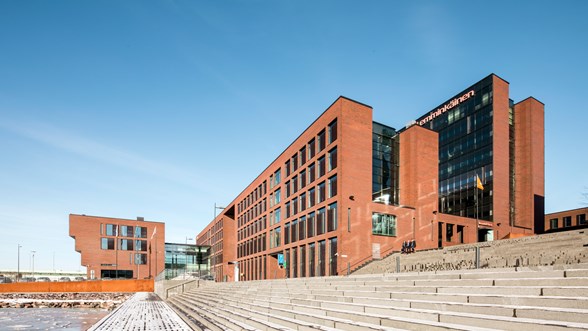Varma participated in the global real estate sustainability assessment this year for the fifth time, scoring 87 points out of a possible 100. Varma’s score improved by one point from the previous year, representing the best score ever since Varma started GRESB reporting. That score earned Varma four stars out of five, i.e. the second highest rating.
Varma performed extremely well in its GRESB peer group and reached the highest score in the group. The peer group consisted of seven similar Finnish real estate investors. In the peer group of European unlisted low-risk real estate investments, Varma ranked 38th among the 311 investors. Varma received full points in the area of sustainability management.
“This was the fifth year that we participated in the assessment, and we have managed to improve our score each year. The upward trend encourages us to further improve our sustainability practices,” says Varma’s Real Estate Investment Manager Johanna Haikala.
“It’s great that Varma managed to improve its environmental responsibility management from the previous year. The good coverage of Varma’s energy data and slight reduction in energy use had a positive impact on the score. Furthermore, the efforts to increase in-use certifications resulted in a higher score and earned Varma the peer group’s highest score in this area. Varma’s score is very close to achieving the highest, i.e. five-star, rating,” says Sanna Uolamo-Uusitalo, Senior Sustainability Consultant at Ramboll, Varma’s co-operation partner in the GRESB assessment.
GRESB establishes its position as the framework for real estate sustainability
The GRESB assessment examines the sustainability of real estate assets in an investment portfolio at the level of the entire direct real estate portfolio. It looks at, among other things, properties’ sustainability-related risks and opportunities, energy and water consumption, greenhouse gas emissions and environmental management systems, as well as the company’s corporate sustainability policies and how they are managed.
GRESB’s popularity as a methodology for assessing the sustainability of real estate has increased, and the number of participants rose by 15 per cent from the previous year. GRESB provides a global framework to measure the sustainability of real estate, and in 2023, participation grew to 2084 real estate portfolios across 75 countries.

